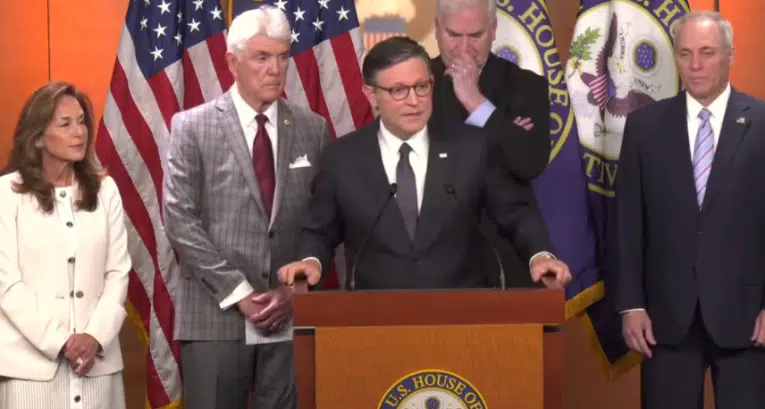By Kevin Mooney — While speaking at a National Press Club (NPC) luncheon in September, Sen. John Cornyn (R-Texas) predicted his party would win the U.S. Senate race in West Virginia in an upset and not without good cause.
The Real Clear Politics average has Joe Manchin, the state’s Democratic governor, holding a narrow two point lead over John Raese, the Republican challenger. But other polls, such as Rasmussen, have consistently put Raese in the lead and the state has been trending Republican.
But Manchin is no left-winger and often aligns himself with libertarian positions.
He has earned praise from no less than the CATO Institute for reducing taxes and constraining government. Most recently, he also filed a lawsuit on behalf of his state against the Obama Administration that would seek to undue federal limits set against mountaintop removal coal mining.
Will the voters, who have already elected him to statewide office, reward him for safeguarding the local economy, or would they prefer to break up the Democratic Party’s hegemony in Washington D.C.?
There’s no denying how much of a burden the administration’s green extremism has been to Manchin’s campaign in a state that is very reliant on the coal industry. President Obama’s approval rating in West Virginia has fallen below 30 percent and Raese has understandably worked to interlink Manchin with his politically radioactive national party.
The Environmental Protection Agency (EPA) has imposed highly restrictive review procedures for permits that allow mining operations to use mountaintop removal as a method for gaining access to low-sulfur coal reserves. The procedure calls for mountaintops in the Appalachia region to be blasted away so that coal can be withdrawn more efficiently.
Any remaining debris is transferred into adjacent valleys and from here they sometimes flow into streams triggering the Clean Water Act. The state’s Department of Environmental Protection (DEP) had already submitted new, upgraded water quality standards in August as a way to pre-empt federal action. But the EPA is proceeding with its regulatory agenda much to the consternation of Manchin and his campaign.
“The Obama administration’s hostility to fossil fuels, and to coal in particular, has provoked a huge political backlash throughout Appalachia,” Bonner Cohen, senior fellow with the National Center for Public Policy Research (NCPPR) observed. “Determined to destroy an entire industry, one that accounts for 50 percent of the nation’s electricity, the administration’s green elites have incurred the wrath of ordinary hard-working people. The repercussions will be felt far beyond West Virginia.”
In his press conference announcing the anti-EPA suit, Manchin said it was necessary to take action to stop the “EPA’s attempts to destroy the coal-mining industry and our way of life.” Here he is very much on the side of public sentiment, which may explain why the electorate appears inclined to keep him where he is.
The following analysis from Real Clear Politics says it all:
“Manchin’s problem is that voters like the way he’s performing as Governor, but don’t want to give another vote in the Senate for the Obama Administration. Unfortunately for him, there’s a way for voters to do just that — by voting for Raese. This is increasingly reminiscent of Kerry/Weld in Massachusetts — voters liked Weld and didn’t really like Kerry, but decided to keep Weld as Governor and send Kerry back to Washington.”
When he was asked to make a surprise prediction at the NPC luncheon, Cornyn responded,
“I think John Raese is going to be the next United States Senator from West Virginia.”
The Texas Republican chairs the National Republican Senatorial Campaign Committee (NRSCC). He was joined by Sen. Robert Menendez of New Jersey, his Democratic counterpart.
“Well, I simply think that Democrats are going to have a lot more votes in the United States Senate than people think this cycle,” Menendez said in closing. “And that we will surprise people on November the 2nd.”
But it was only a few election cycles ago that West Virginia was a reliable Democratic state.





